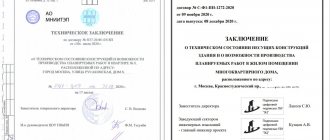The right to use residential premises owned by an individual or legal entity may arise for various reasons, in particular:
- on the basis of the owner granting the right to use residential premises to members of his family (clause 2 of article 30 of the Housing Code of the Russian Federation);
- on the basis of a testamentary refusal (clause 1 of article 33 of the Housing Code of the Russian Federation);
- on the basis of an apartment purchase and sale agreement;
- on the basis of a lifelong maintenance agreement with dependents (Article 34 of the Housing Code of the Russian Federation);
- based on a lease agreement, and more.
The grounds for the right to use residential premises are:
- residence as the owner of the premises (due to the exercise of one’s property rights);
- living as a tenant (due to the provision of residential premises under the terms of a lease agreement);
- living as family members (moving in with the consent of the owner or tenant due to the presence of family relationships).
The above-mentioned persons have the right to reside in the apartment indefinitely, that is, their right is not limited by time limits and, accordingly, cannot be terminated upon their expiration. At the same time, the right to live in an apartment is lost, for example, due to a move, and the termination of the right to use residential premises involves other grounds, which we will talk about later. Termination of the right to use residential premises in Russian housing legislation is one of the most pressing problems, to resolve which it is necessary not only to know your rights and obligations, but also to be able to correctly refer to the letter of the law in order to protect your honor and dignity. Termination of the right to use residential premises may occur between:
- the owner and former members of his family;
- the owner and family members of the former owner.
The person in respect of whom the right to use has been terminated is obliged to leave the residential premises that are the object of the conflict. The period for termination of use of residential premises and its release is determined by the owner independently. In case of refusal to vacate the apartment voluntarily, on the basis of Part 1 of Art. 35 of the Housing Code of the Russian Federation, an interested person has the right to file a claim for eviction from an apartment. If the right to use housing was granted in accordance with a court decision, the basis for prohibiting use may be cases of improper use of housing, entailing a violation of the rights and interests of neighbors, destruction of the premises, etc.
Grounds for termination of the right to use residential premises
In accordance with the housing legislation of the Russian Federation (Article 35 of the Housing Code), the grounds for termination of the right to use residential premises and eviction of a citizen in cases where there is a court decision or a testamentary refusal may be:
- improper use of the premises, including its use for other purposes;
- systematic violation of the legal rights and interests of neighbors;
- mismanagement of the premises.
The owner of residential premises has the right to demand from citizens using housing that they comply with all obligations specified by law. If violations are detected, the owner can warn the user about the need to eliminate the violations, setting a deadline for eliminating the consequences of the violations, for example, performing repair work. If the user of the residential premises refuses to eliminate the violations and their consequences without valid reasons, the owner of the property has the right to demand the vacancy of the apartment (Clause 2 of Article 35 of the Housing Code of the Russian Federation). Along with the above-mentioned grounds for termination of the right to use residential premises, the legislation also provides for other cases that may cause termination of the right to use. The most common of them is divorce, as a result of which one of the participants in the marriage acquires the status of a “former family member.” In accordance with the norms of the Housing Legislation of the Russian Federation, persons who have acquired this status lose the right to use housing and must be deregistered at the address and evicted from the apartment. Russian legislation also provides for exceptional cases when elderly citizens or mothers with small children, who for objective reasons do not have other housing or the means to purchase it, fall into the category of those who have lost the right to use residential premises. In these cases, to resolve the issue of eviction, the court has the right to make a decision on the possibility of living in this apartment for a certain time necessary to find new housing, or to oblige the owner to purchase other housing for them. The right to use residential premises will be terminated, respectively, upon expiration of the period established by the court or from the moment of relocation to new housing.
Important! Eviction of a person using residential premises by a court decision can only be carried out on the basis of a court decision in the presence of bailiffs.
Termination of the right to use residential premises by former family members of the owner
Today, one can often encounter situations where, with the termination of family relations with the owner of the property, the former spouse who has acquired the status of a former spouse loses the right to use the residential premises (unless other conditions are provided for in the marriage contract).
In accordance with paragraph 4 of Art. 31 of the Housing Code of the Russian Federation, termination of family relations does not preserve the right to use residential premises for a former family member. The rights of persons living in an apartment are protected by law only until the owner gives his consent.
The family legislation of the Russian Federation clearly defines the circle of persons who are family members of the owner of the property: spouse, children, parents of the owner. Accordingly, the named persons will be considered as such until the termination of family ties (divorce, death, deprivation of parental rights, termination of guardianship/trusteeship, cancellation of adoption and other reasons). The issue of recognizing persons as “former family members” can only be resolved in court with a study of all the circumstances of each case.
If there is a minor child in the family divorcing the marriage, the latter does not lose the right to use the residential premises.
If a former family member of the owner of an apartment/house presents evidence in court that he cannot currently provide himself with housing, his right to live in the residential premises of his former spouse is retained for a period determined in court.
Documents for the claim
The statement of claim must be submitted to the court with the following documents:
- The claim itself is in two copies;
- A copy of the applicant's passport;
- Title papers for residential real estate (two copies);
- Receipt for payment of state duty;
- A copy of the house register (two copies);
- An extract from the management company from the chairman of the homeowners association, confirming that the defendant does not actually live at the specified address.
It is advisable to attract witnesses who can speak on the side of the plaintiff. They can be not only neighbors and relatives, but also other persons who witnessed any action.
When faced with housing disputes, and remembering that you can only go to court on this matter once, it makes sense to consult with an experienced lawyer rather than try to figure it out on your own. This is especially important if unexpected surprises arise during the process and there is opposition from the defendant, who is not satisfied with the loss of this object. The services of specialists have their price, but the risk that a person takes, relying only on his own strength, is sometimes unjustified and costs much more.
Termination of the right to use residential premises by family members of the former owner
Russian housing legislation also provides for the procedure for terminating the right to use residential premises of family members of the former owner of this apartment or house. If until 2005, according to the law, family members of the former owner did not lose the right to use housing even after the termination of family relationships, today the current legislation establishes that the direct transfer of ownership of an apartment or house to another person entails the termination of the right to use this premises (p 2 Article 292 Civil Code). The rights of family members of the owner depend on the rights of the owner himself, that is, they also have the right to use the residential premises, to use it properly and for its intended purpose, capable adult family members bear joint and several liability with the owner for the fulfillment of obligations arising from the use of this premises, in addition , family members have the right to demand elimination of violations of their rights and interests to use housing, including the owner himself. As we already wrote above, according to paragraph 4 of Art. 31 of the Housing Code of the Russian Federation, termination of family relations with the owner of the property does not preserve the right to use the residential premises for the former family member. However, there is an exception to this rule: on the basis of Art. 19 Federal Law No. 189 of December 29, 2004 “On the entry into force of the Housing Code of the Russian Federation” of the provisions of Part 4 of Art. 31 of the Housing Code of the Russian Federation on the loss of the right to use residential premises in the event of termination of family relations with the owner of the housing does not apply if at the time of privatization of this apartment/house all family members had equal rights of use with the person who privatized this housing. In addition, Part 2 of Art. is not applicable to such family members. 292 of the Civil Code of the Russian Federation due to the unlimited right to use residential premises.
Details of departure and payment
The nuances of leaving the living space after the loss of use rights are determined by the court, depending on whether the person lost them voluntarily or involuntarily.
Conflicts often occur, and, as practice shows, most often they are family conflicts. Here, the main role will be played by the testimony of witnesses, protocols and acts of law enforcement agencies, the local police officer, examination of the damage caused, as well as other evidence that the eviction is legal and deserved. It is also necessary to take into account the fact whether the person who lost his rights had permanent or temporary registration in the occupied housing, whether it was a rental, whether the person moves and for what reasons lives at the specified address. If necessary, judicial authorities conduct an examination to confirm the fact of a person’s residence or non-residence at a certain address.
Since the lawsuit is usually filed against tenants, they will have to defend their rights and prove that the owner is illegally preventing them from living. This will significantly delay the legal process and complicate the case for both parties. However, if the reason for deprivation is non-payment of utility bills, the defendant can hardly count on a positive decision.
The procedure for removing former family members of the owner from residential premises
After the court decision on termination of the right to use residential premises is made and enters into legal force, in accordance with Art. 35 of the Housing Code of the Russian Federation, a person who has lost the right to use residential premises must vacate this apartment within the prescribed period. This article gives the right to the owner of a residential premises to voluntarily or forcibly evict family members who have lost the right to use, including filing a claim with the court for eviction and deregistration. At the same time, Article 31 of the Housing Code of the Russian Federation provides for circumstances according to which the discharge and eviction of a person who has lost the right to use residential premises cannot be carried out: if there are no grounds for acquiring or exercising the right to use another residential premises, the court has the right to reserve the right of a former family member use of this apartment or house for a certain period. If it is necessary to remove a person from a previously privatized apartment, the fact of his consent to privatization should be taken into account. Accordingly, if the citizen who needs to be deregistered took part in privatization or gave his written consent, he automatically acquired an indefinite right to use this residential premises and it will be impossible to deregister him, much less evict him (we are talking about cases when the former owner remains family member). In cases where we are talking about the removal of a person from a non-privatized apartment and his eviction, on the basis of clause 3 of Art. 83 of the Housing Code of the Russian Federation, the departure of the tenant and his family members implies the simultaneous termination of the social tenancy agreement from the moment the apartment is vacated. However, it is worth noting that in this provision there are exclusionary factors, for example, if a citizen left the residential premises for a certain period of time and not of his own free will (is in prison, in a clinic for treatment, etc.), the requirements the above article cannot be applied. Another example of a person being expelled from a residential premises through a judicial procedure is the absence of the fact of residence in this apartment, although there is registration at this address. That is, if a person registered in an apartment has never lived in it, it is necessary to file a claim with the court to recognize this person as not having acquired the right to use the residential premises; If a citizen lived in this apartment, but left long ago voluntarily or forcibly, an application is submitted to the court to recognize him as having lost the right to use the residential premises and, accordingly, to remove him from the registration register at this address. Such cases in court are considered taking into account certain circumstances of the case, in particular, the presentation of evidence by the plaintiff that the defendant vacated the premises voluntarily, his non-participation in the costs of maintenance and repairs, as well as non-payment of utilities and other factors that could influence to the court's decision.
Non-payment of utilities
When a person who does not use the living space, but is registered there and does not pay for utilities, does not in any way bear his obligations for the maintenance of this property, he can be evicted.
To do this, the owner of the property files a claim with a judicial authority, where he demands to recognize that the tenant has lost the right to use the property. Despite the fact that registration does not give ownership rights, it affects the amount of utility bills, and these are significant expenses that are constantly increasing. The fact of non-residence and non-payment must be documented. In addition, the owner, aka the plaintiff, often has no idea where exactly the registered person lives and cannot contact him. This usually complicates the task, since the case is considered one-sided, and in court it is important to consider the situation from both sides.
If the defendant’s place of residence is known, a summons will be sent to him. The authorities of the Federal Migration Service at the location of the apartment, house or other housing in question serve as a third party considering the claim document.







